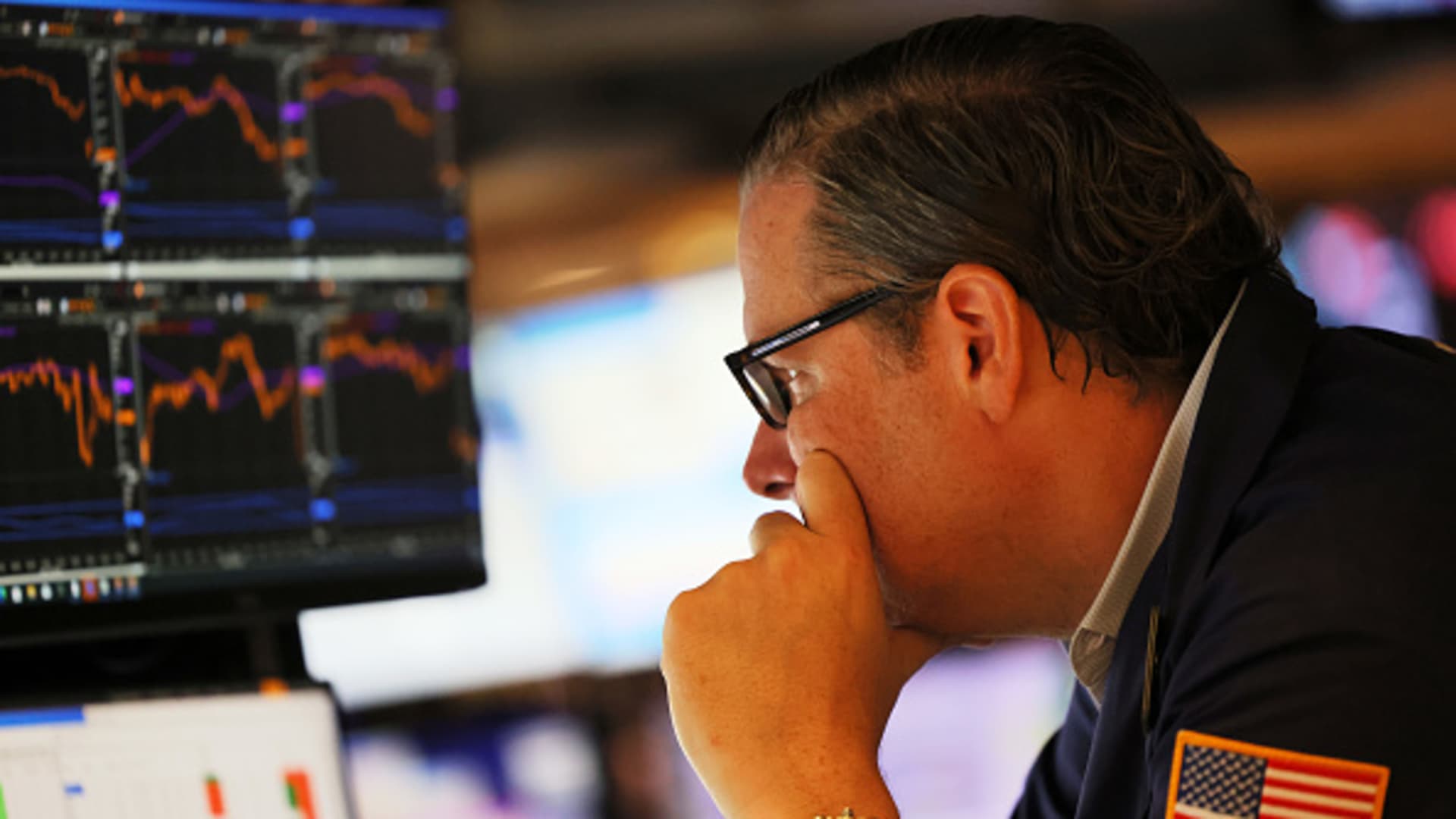
Recession risks are growing once more, as Wall Street’s summer rally fizzles at the prospect of more interest rate hikes. On Monday, U.S stocks had their worst day since June. The major averages all closed down lower, with all 11 S & P 500 sectors closing lower in the broad-based sell-off. “Our indicators suggest a recession is increasingly likely as we move into next year, especially if the Fed continues to raise rates,” Canaccord Genuity ‘s analysts, led by Tony Dwyer, wrote in a research note on Aug. 22. “A Fed that is expected to nearly double rates from current levels into a historically levered system with surging inventories and weakening global demand increases the likelihood of a recession,” Dwyer added. The bond market is also flashing a recession warning, with the yield on the benchmark 10-year Treasury note sitting lower than the 2-year Treasury rate . That implies a yield-curve inversion — when shorter-term government bonds have higher yields than longer-term ones despite carrying lower risk. This is often viewed by markets as a sign of a looming recession. But it’s not just the United States that might be headed for a recession. UBS’ strategists, led by Sutanya Chedda, said in a note on Aug. 16 that the probability of Europe falling into a recession has also risen. Citi, likewise, wrote in a note on Aug. 17 that a global recession is a “clear and present danger.” Read more Why tech investor Gene Munster thinks Apple has an upside of more than 40% JPMorgan says the growth stocks rally has further to go — and explains when it will likely end How to reduce risk in your portfolio right now, according to the pros UBS noted that the number of stocks trading above their 10-year average is below average and near previous recession lows. The bank said earnings per share growth estimates could be inflated, making stocks look cheaper and more attractive to investors. “We expect earnings will be front-loaded this year after a strong first half, and the economic outlook for Europe is worsening with PMIs, business confidence and consumer confidence all on a downward trend,” Chedda said. The bank screened for buy-rated “top quality” European stocks that still look cheap even after factoring in recessions risks. The screen turned up Shell and Eni in the energy sector, Vodafone in telecommunications, Spanish bank BBVA , bottler Coca-Cola Hellenic and building materials firm HeidelbergCement . Morgan Stanley’s picks Meanwhile, Morgan Stanley sees recession risks in Europe rising and the region being confronted with persistent stagflation. “Inflation surprises continue to outweigh economic surprises in Europe,” Morgan Stanley’ strategists, led by Graham Secker, said on Aug. 16. “Inflation is likely to come down more slowly in Europe than we expect for the U.S.” Secker said European PMI (purchasing managers’ index) data could fall even further, and companies may face more margin pressures as inflation outpaces real GDP growth. He added that while the MSCI Europe is trading below its long-term median, European stocks remain “not really cheap.” The bank’s list of “cheapest defensive stocks” includes Irish food company Kerry Group , utility firm Engie and Enel , as well as French beverage company Pernod Ricard . Stocks that made the bank’s “cheapest cyclical stocks” list include tire manufacturer Michelin , steelmaker ArcelorMittal , Deutsche Post , automaker Stellantis , Swiss building materials firm Holcim and Siemens . Danish shipping firm AP Moller Maersk and French construction materials group Saint-Gobain turned up on both UBS’ and Morgan Stanley’s screens.
